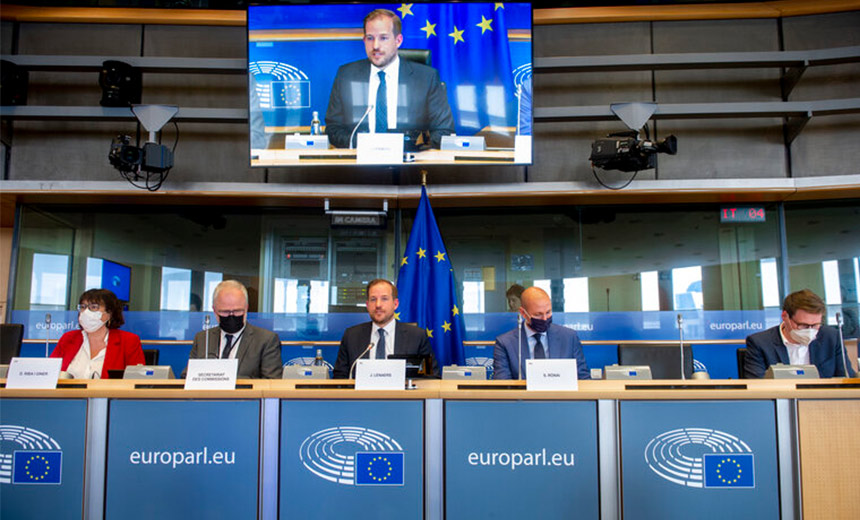Endpoint Security , Governance & Risk Management , Privacy
European Parliament Pegasus Investigation Faces Resistance
'No Cooperation From the Polish Authorities,' Laments Inquiry Head Jeroen Lenaers
An investigation by the European Parliament into use of Pegasus and other advanced smartphone spyware by European Union member countries is running into opposition from national governments, lamented Jeroen Lenaers, head of the investigative committee.
See Also: Website Security for the Evolving Cyber Threat Landscape
The Parliament overwhelmingly voted in March to form a PEGA committee after reports surfaced that authorities in Poland and maintains that it sells the spyware to authorized states for use in national security and law enforcement investigations. At its most advanced, Pegasus can infect a mobile device without a user having to click on a malicious link.
The advanced spyware gives its controllers access to everything that happens on a smartphone - the ability to read emails and texts, see photos and contact lists and even secretly turn on the microphone to record conversations.
The committee’s intelligence-gathering efforts are proceeding slowly and with difficulty given noncooperation from countries including Poland and Hungary, said Lenaers during a Tuesday event in Brussels hosted by Politico.
"When we went to Poland on a mission, we received no cooperation from the Polish authorities, whatsoever," Lenaers said. Use of Pegasus by governments can invoke national security sensitivities, Lenaers acknowledged, but said PEGA's inquiry is concentrated on questions of the rule of law.
"I find it very hard to believe that in countries like Hungary and Poland all the spying that was done - on journalists, on prosecutors, on activists, on opposition politicians - was all necessary for national security," he added.
Věra Jourová, vice president of the European Commission and commissioner for values and transparency, said European Union states can't simply invoke "national security" to justify the domestic deployment of advanced spyware. Member states must ensure that their use of spyware is legal, necessary and proportional to the matter being investigated, she said.
Early this month, Leaners clashed with Dimitrios Papadimoulis, a member of the Greek Syriza party and a member of the European Parliament, after Papadimoulis shared a sensitive internal use document via Twitter, which detailed the PEGA committee's inquiry mission in Greece in November, Politico reported.
Greece and Spain also will be investigated by the committee in the coming months over their use of spyware to target journalists and politicians. In July, the committee was criticized after its mission to Spain was temporarily put on hold. Spain is undergoing a political crisis after a government official in May disclosed that the smartphones of Spanish Prime Minister Pedro Sánchez and Defense Minister María Margarita Robles had been infected with Pegasus. The Citizen Lab in April revealed that at least 65 Catalan separatists had been targeted by the advanced spyware.






















